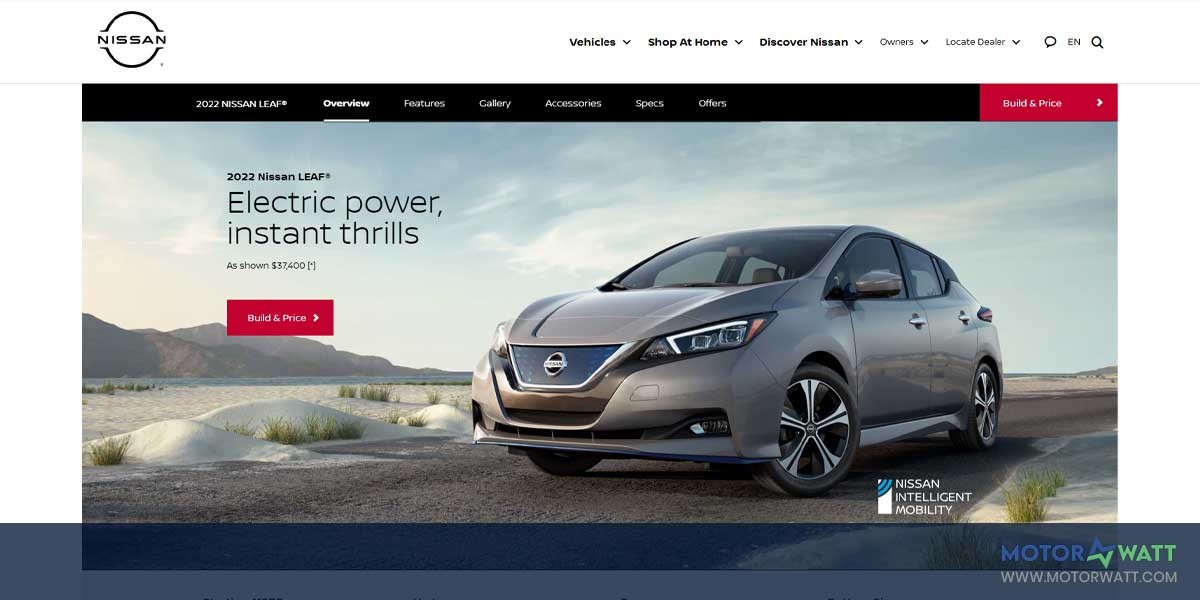About NISSAN Manufacturing Company
Nissan: Pioneering the Electric Vehicle Surge
In the year when the world was cautiously optimistic about the future—1933—a Japanese behemoth, Nissan, was born, quickly becoming an emblem of automotive excellence. With an unwavering allegiance to the twin pillars of quality and innovation, this manufacturer has etched its name in the annals of global motoring history. Through decades of fluctuating market desires and burgeoning trends, Nissan has not merely survived; it has thrived, positioning itself as a titan among titans in the mobile machinery domain.
Nissan's Audacious Leap into the Electric Vortex
Fast forward to 2010, a year that echoed with the harmonized roar of engines around the globe, and Nissan decided to tweak the frequency. Introducing the Nissan LEAF, this wasn't a mere car; it was an ideological rebel, a breath of fresh, electrified air. With its debut, Nissan didn't just enter the EV fray; they redefined it, presenting the LEAF as a beacon for eco-conscious motorists. Here was a ride that whispered rather than roared, proving that silence could indeed be powerful.
Widening the Electric Embrace
Since that groundbreaking journey began with the LEAF, Nissan has not sat idly by. Like a painter facing a vast canvas, the automaker has continuously broadened its palette. The result? An electric lineup that's as varied as it is vibrant, featuring jewels like the Nissan Ariya, Nissan e-NV200, and Nissan IMx. Each model is a testament to Nissan's commitment to diversify the electric dream, crafting vehicles that cater to every whim and fancy while pushing boundaries of what’s possible behind the wheel.
Charting the Course of Innovation
In the realm of future-forward thrusts, Nissan is more than just a participant; it's a trailblazer. By sinking immense resources into the holy trinity of EV advancements—battery efficiency, enhanced charging systems, and autonomous travel—Nissan is not just predicting the future; they're scripting it. With leaps in regenerative braking, battery lore, and smart mobility, this automaker is setting the course for a tomorrow where electric isn't an option; it's the default.
Nissan's Green Manufacturing Mantra
Yet, the tale of Nissan's green revolution isn't confined to the vehicles that glide silently off its production lines. With a gaze fixed firmly on sustainable production techniques, Nissan integrates eco-friendly processes across its operational spectrum. From slashing waste to curbing emissions and conserving energy, Nissan’s manufacturing practices are as green as the cars they birth, epitomizing a holistic approach to environmental stewardship.
Environmental Milestones Achieved by Nissan EVs
The ripple effects of Nissan's electric fleet are far-reaching, not just in reducing the cacophony of urban sprawl but in painting a greener future. By transitioning from the dinosaur juice guzzlers to electric marvels, Nissan is significantly reducing the specters of greenhouse gas emissions and air pollution. And with renewable energy sources coming into the charge cycle, Nissan EVs are not just vehicles; they're vehicles of change.
Conquering the Anxiety of Empty Batteries
However, the road to electrification isn't without its bumps. The specter of range anxiety and the scramble for charging points remain potent deterrents. Yet, in typical Nissan fashion, obstacles are but opportunities in disguise. By forging alliances with governments and industries, Nissan is not just expanding the charging grid but is redefining it, making 'juicing up' as easy as brewing a morning cuppa, thus silencing the doom-mongers who fret about reaching the journey's end on a single charge.
Nissan's Vision for a Battery-Powered Tomorrow
Peering into the crystal ball, Nissan envisages a world swathed in electric blues rather than carbon blacks. This dream extends beyond just putting EVs on the road; it envisions a universe powered by renewable energies, supported by cutting-edge infrastructures, and enriched by autonomous adventures. Nissan’s ambition is simple yet profound: to sculpt a mobility landscape where electric isn’t just an alternative; it's the anthem.
View all Products Produced by "NISSAN"
(where we publish the EV description and EV specs for each model)


